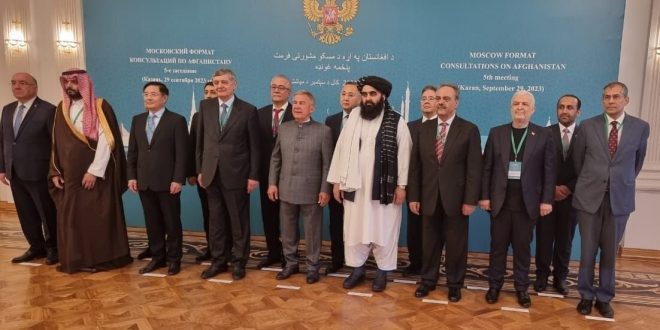AT News
KABUL – In a high-stakes diplomatic gathering held in Kazan, Russia, on September 30, the “Moscow Format” meeting witnessed significant developments, albeit without achieving its primary objectives. The meeting, attended by representatives from nine nations, featured India’s participation, raising questions about the potential closure of the Afghanistan Embassy in Delhi.
The gathering included special envoys from Pakistan, Russia, China, Iran, and Central Asian states, alongside an invitee, the Acting Foreign Minister of the Taliban. At the heart of the discussions were pressing issues concerning the future of Afghanistan.
Participants of the regional grouping reiterated their longstanding demands that the Taliban establish a “truly inclusive government” and ensure equal rights and freedoms for all Afghans, with a particular focus on women’s rights. However, despite these emphatic calls, the meeting failed to make substantial progress on these crucial matters. Notably, no commitments were extracted from the Taliban representatives regarding a timeline for government formation or the resumption of girls’ education.
As uncertainty looms over the status of the Afghanistan Embassy in Delhi, the outcome of the Kazan meeting leaves observers pondering the future of Afghanistan and the international community’s efforts to promote equality and stability within the country.
 Afghanistan Times
Afghanistan Times




